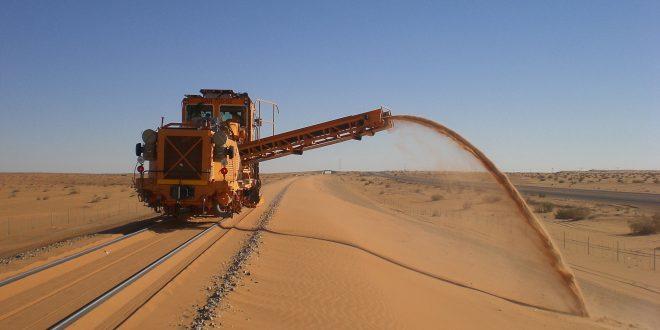Authored by Thierry Meyssan via The Voltaire Network,
While the United States and their allies have deliberately created famine conditions in North Korea, then in Sudan, in Tunisia, and now in Yemen, they are also beginning to drag Syria down into starvation. The only way of avoiding this situation is by relaunching the regional economy, which collapsed during the wars in Iraq and Syria. Two projects for railroads are currently in competition – the first intended to develop the region, the second to divide it. Are the Westerners behaving like human beings, or are they pursuing their dream of world domination?
For its reconstruction, Syria can only count on itself, because not one of the powers that spent hundreds of billions of dollars to destroy it is prepared to spend the first cent to help rebuild it.
In these conditions, the future of the country depends on reconnecting with its past – the time at which it was the only open passage between the Indian Ocean and the Mediterranean Sea. In antiquity, the « Silk Road » stretched from the ancient Chinese capital of Xi’an to Antioch and Tyr.
This route was not only a passage which enabled the exchange of merchandise from town to town, it was also a route for culture via which Chinese philosophy spread through Asia, and the Muslim religion arrived in China. It was a route whose common language was not Mandarin, but Persian. Thereafter, Syria continued to be the passage between the Indian Ocean and the Mediterranean, which ensured its prosperity until the construction of the Suez Canal.
The project for a railroad linking the Iranian port of Khorramshahr, at the frontier with Iraq, to the Syrian Mediterranean coast, via Baghdad, is not a new idea. It had already been planned before the war, at the time of the Turko-Irano-Syrian common market. Its tracks were systematically sabotaged by pro-Western mercenaries, causing the derailing of trains and the deaths of personnel and travellers.
So, from the start, the organisers of the war – primarily the United Kingdom – intended to prevent Syria’s economic activity. This is a characteristic behaviour of British colonialism – making sure that the colonised people remain dependent.
For example, when India was the main producer of cotton, London made sure that it could produce, but not weave, so that cotton cloth could only be made in England. That is why Mahatma Gandhi wove cotton on a spinning wheel, as an act of subversion.
The United States pretend today that they are opposing this project in order to prevent the transport of heavy weapons to Iran. We know that this is a pretext because Secretary of State Mike Pompeo said so himself last month. Washington’s only objective is to hinder the exploitation of Syrian gas and oil while the US sells its shale hydrocarbons (of which the production should decline rapidly as from 2023, according to the International Energy Agency).
In April 2017, then again in last November, Israël proposed to build another railroad between the two seas. The Minister of Intelligence and Transports, Israël Katz, has apparently obtained the agreement of Jordan, Saudi Arabia, the United Arab Emirates and the Sultanate of Oman. US special envoy, Jason Greenblatt, suggested that the Israëli project could be included in the « Deal of the Century ».
The quantity of the merchandise to be transported is such that both projects, although competitors, could easily coexist, except for the fact that Tel-Aviv is not reputed for sharing.
In truth, the only losers would be the Western Europeans, because today’s merchandise no longer resemble those of the ancient Silk Road. In earlier times, the Europeans produced no silk, while China could supply it. Today, both actors produce the same things – Chinese produce is of a lesser quality, but much less expensive. Their arrival en masse could rapidly destroy what is left of European industry. In order to protect themselves, Western Europeans will have to regulate their exchanges.
via ZeroHedge News http://bit.ly/2UHkiPc Tyler Durden
